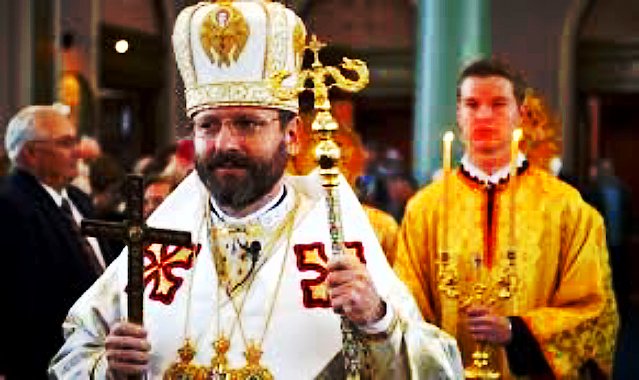Greek Orthodox Church of Ukraine and its Connection to the Pope
The Greek Orthodox Church of Ukraine (OCU) is an autocephalous Eastern Orthodox church in Ukraine.
It was established on December 15, 2018, by the unification of two previously independent churches: the Ukrainian Orthodox Church – Kyiv Patriarchate (UOC-KP) and the Ukrainian Autocephalous Orthodox Church (UAOC). The OCU is the largest Orthodox church in Ukraine, with over 12 million members.
The OCU has no formal connection to the Pope, who is the head of the Roman Catholic Church. However, the two churches have engaged in dialogue in recent years. In 2019, Pope Francis met with Epiphanius I, the head of the OCU, and the two leaders signed a joint declaration in which they pledged to work together to promote peace and unity between Christians.
The OCU has been a strong supporter of Ukraine in its war against Russia. In February 2022, Epiphanius I called on the international community to support Ukraine and to impose sanctions on Russia.
He also condemned the Russian Orthodox Church for its support of the war.
In a recent interview, Epiphanius I said that the Pope's support for Ukraine is "very important" and that it shows that the Pope is "a man of peace and a man of justice."
However, he also said that the Pope needs to do more to speak out against the Russian Orthodox Church and its support for the war.
History of the Greek Orthodox Church of Ukraine
The history of the Greek Orthodox Church of Ukraine dates back to the 10th century, when Christianity was first introduced to the region. In 988, Prince Vladimir the Great of Kyiv converted to Christianity and baptized his people. The Metropolitanate of Kyiv was established as part of the Patriarchate of Constantinople.
In the 13th century, Ukraine was conquered by the Mongol Golden Horde. The Metropolitanate of Kyiv continued to exist, but it was under the control of the Mongol rulers. After the fall of the Golden Horde in the 15th century, the Metropolitanate of Kyiv was divided between the Patriarchates of Constantinople and Moscow.
In the 16th century, a number of Ukrainian Orthodox bishops joined the Catholic Church in a union known as the Union of Brest.
This union was controversial, and it led to a split in the Ukrainian Orthodox Church. The Orthodox Church that remained in communion with Constantinople became known as the Ukrainian Orthodox Church – Kyiv Patriarchate (UOC-KP).
In the 20th century, the UOC-KP was suppressed by the Soviet government. Many UOC-KP priests and bishops were imprisoned or executed. After the collapse of the Soviet Union in 1991, the UOC-KP re-emerged as an independent church.
In 2018, the UOC-KP and the UAOC united to form the OCU. The unification of the two churches was a major step towards the establishment of a united and independent Orthodox church in Ukraine.
Statements by the Head Priest Considering the Pope Supporting Russia in the War
In a recent interview, Epiphanius I, the head of the OCU, said that the Pope's support for Ukraine is "very important" and that it shows that the Pope is "a man of peace and a man of justice."
However, he also said that the Pope needs to do more to speak out against the Russian Orthodox Church and its support for the war.
Epiphanius I said that the Pope should "call on the Russian Orthodox Church to stop its support for the war and to condemn the aggression against Ukraine." He also said that the Pope should "work with other Christian leaders to isolate the Russian Orthodox Church and to hold it accountable for its role in the war."
Epiphanius I's statements reflect the growing frustration among many Ukrainian Orthodox Christians with the Pope's perceived reluctance to criticize the Russian Orthodox Church. The Pope has repeatedly called for peace in Ukraine, but he has been careful not to directly criticize the Russian Orthodox Church or its Patriarch, Kirill.
Some Ukrainian Orthodox Christians have accused the Pope of being too willing to appease the Russian Orthodox Church. They argue that the Pope should be more outspoken in his criticism of the Russian Orthodox Church and its role in the war in Ukraine.
Conclusion
The Greek Orthodox Church of Ukraine is a young and independent church. It has no formal connection to the Pope, but the two churches have engaged in dialogue in recent years. The OCU has been a strong supporter of Ukraine in its war against Russia. The head of the OCU has called on the Pope to do more to speak out against the Russian Orthodox Church and its support for the war.



Comments
Post a Comment